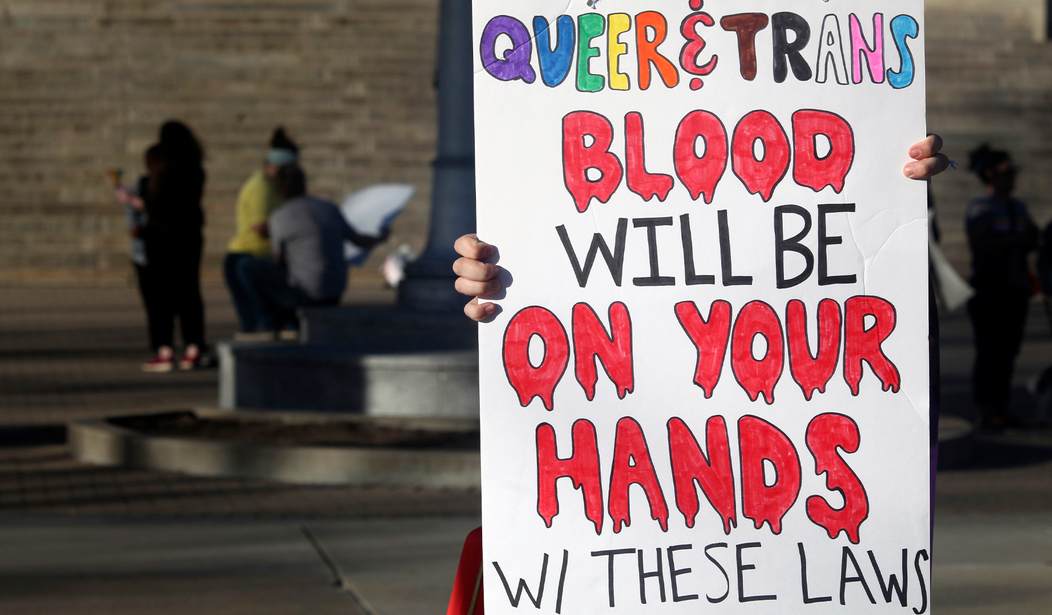In recent years, the debate surrounding the proper treatment for children suffering from gender dysphoria has grown more intense. Progressives have argued in favor of the “gender-affirming care” model, which relies more on helping children “transition” to the opposite gender through the use of puberty blockers, hormone treatments, and even surgery.
On the other side of the coin, critics of so-called gender-affirming care argue that the treatments are not only unhelpful, but they can also cause irreversible damage that could be life-changing for these children after they become adults.
Yet, it appears that those who favor gender-affirming care are intent on promoting these treatments, insisting that the counterarguments are invalid. Now, therapists are increasingly being pressured to adopt this approach when treating minor patients dealing with gender confusion.
Tamara Pietzke, a clinical social worker, recently made some headlines when she quit her job at MultiCare, one of Washington state’s largest hospital systems. In a recent op-ed, she argued that she could no longer comply with her former employer’s insistence on pushing child patients into gender transitions without fully diagnosing their conditions.
"I was getting the message from my supervisors that when a young person I was seeing expressed discomfort with their gender...I should throw out all my training," Pietzke wrote, referring to concerns echoed by other professionals that rushing to affirm a child’s gender will often result in underlying mental health issues being ignored.
Pietzke recounted a situation involving a 13-year-old patient who had a history of depression, anxiety, and autism. The patient’s guardian was requesting hormone treatments after only a few weeks of visits. The therapist recalled being hesitant to use this method: “I was scared for this patient...it seemed like malpractice to abruptly begin her on a medical gender transition."
She is not the only one facing this dilemma. Therapists all across the country have reported a chilling effect coming from state policies that mandate the use of “gender-affirming care” to treat gender dysphoria in children. Several states have imposed legislation that could result in penalties for professionals who do not adhere to progressive gender ideology. Critics argue that this prevents therapists from actually exploring the roots of the child’s problems.
State laws have made it effectively illegal for therapists to help children with gender identity issues come to terms with their natural bodies and biological sex in much of the country by labeling the practice an illegal form of “conversion therapy.”
While conversion therapy is broadly understood to refer to clinical attempts to get patients to stop feeling same-sex attractions, and has historically included practices like shock therapy, the term has expanded since the mid-2010s to include efforts by health care professionals to help gender-confused patients accept their birth sex rather than putting them on the transgender medicalization track. As states pushed new conversion therapy bans under this new definition, therapists are facing intimidation, legal battles and threat of licensure loss for offering a critical or exploratory approach to children who struggle with their gender identity.
“If someone tells you what their gender identity is you must affirm them; you must accept it at face value,” Joseph Burgo, a psychotherapist and vice director of Genspect, told the Daily Caller News Foundation. “It has a chilling effect on the whole profession. I know therapists who avoid gender altogether because they’re afraid of activists coming after them.”
Pressure to conform to gender ideology is not only coming from the state, but also the federal government. The Biden administration issued an executive order mandating that mental health professionals embrace “gender-affirming care” for minor children rather than seeking out other treatment methods.
Biden's executive order seeks to "promote expanded access to comprehensive health care for LGBTQI+ individuals, including by working with States on expanding access to gender-affirming care." When it comes to sex and gender issues, the "gender-affirming" model argues that health care professionals must not question, challenge or even explore ideas or alternatives with patients who identify with the opposite sex. Therapists are simply tasked with affirming patients' rejection of their biological sex, forbidden from questioning the underlying reasons behind these feelings.
The federal government's decree that this model is the only way to deal with cross-sex identification raises important questions about the medicalization of youth who desperately want to escape their bodies, and the freedom of professionals whose first commitment is to do no harm.
The order also expands the definition of the term “conversion therapy” to include efforts to help children accept their birth sex instead of trying to “transition” to another gender, which applies further pressure to medical professionals.
Pietzke’s story highlights the tension between ideology and individual care and prompts essential questions about the best ways to treat and support children suffering from gender dysphoria. As the push for “gender-affirming care” continues in full swing, it is likely that more therapists will come forward with their own tales of being compelled to use treatment methods that they do not support.
Related:
Transgender Activists Showed the Depths They'll Sink to While Disrupting a Riley Gaines Event
Gender Dysphoria Claims Are Skyrocketing—Health Issue or Social Contagion? VIP














Join the conversation as a VIP Member